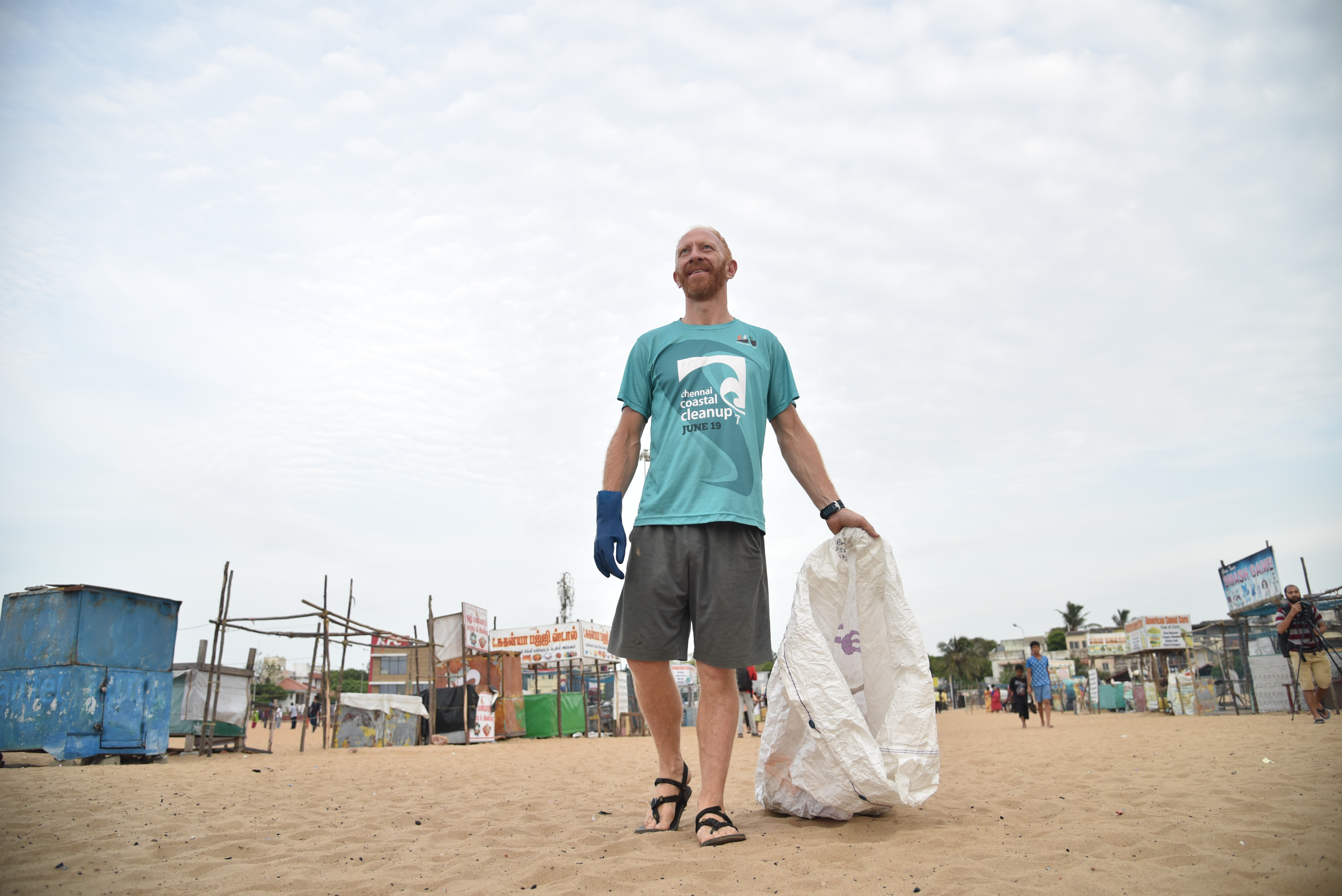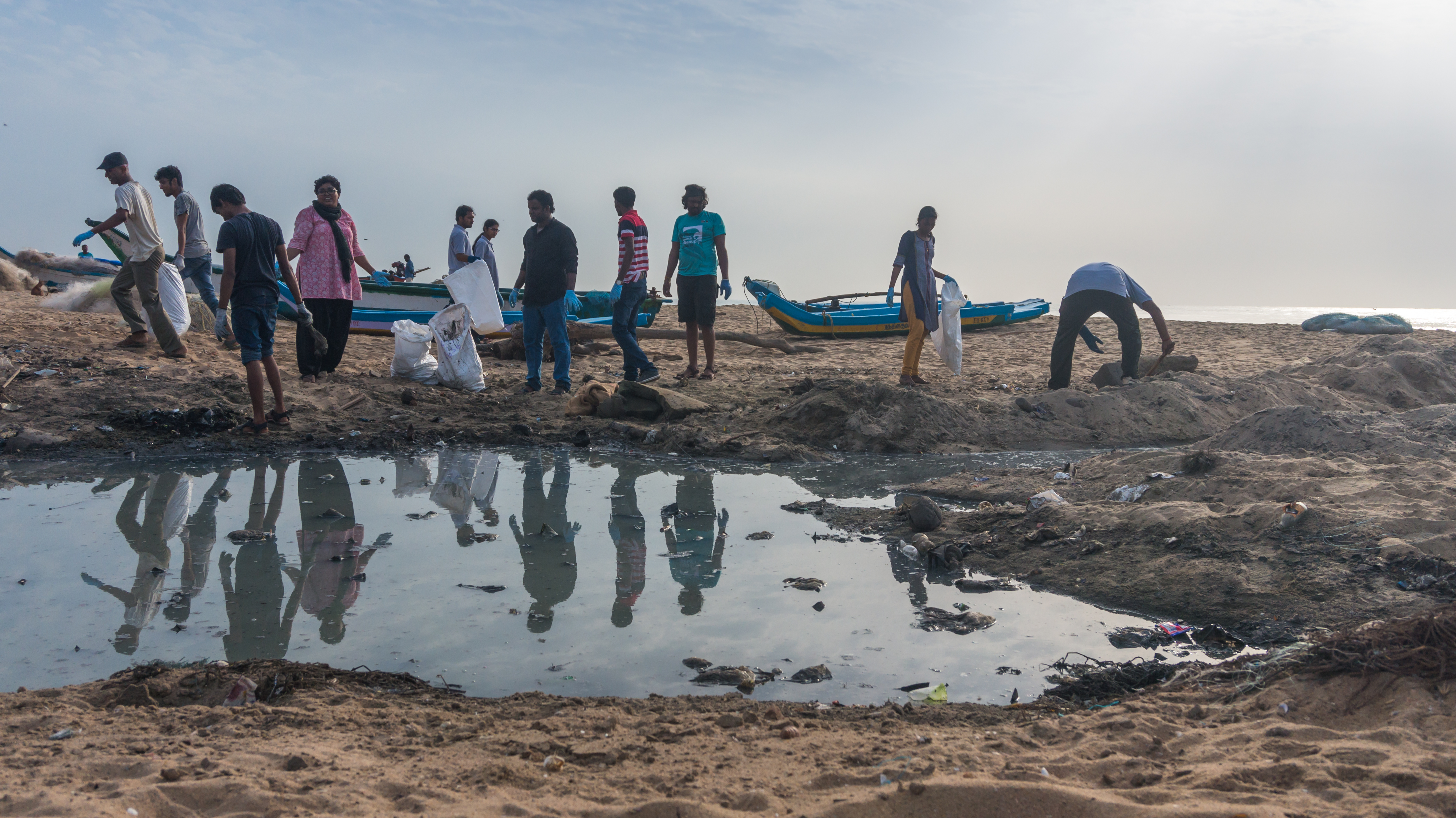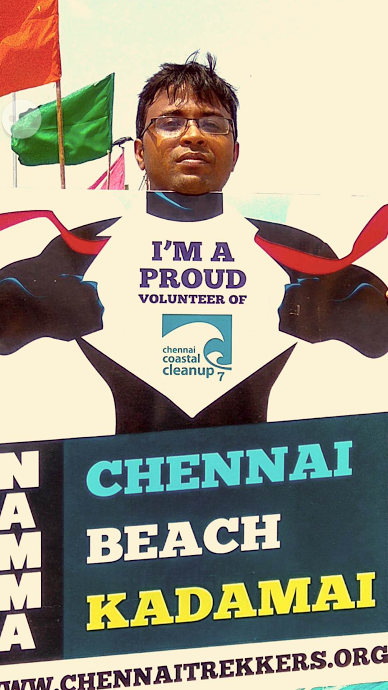“It is crucial that we reconnect young people to nature; camping, trekking, running, cycling and open-water swimming. Only when they feel actively connected to their roots in nature will they start caring for and preserving it.”
An airplane from Belgium to India flies three and half hours into the future. It’s journey is also one into the past; for the last few decades, India has been playing catchup with the developed world, investing in power production, transmission infrastructure and automating industries.
Urban India is revamping its lifestyle to burn fossils on par with its western counterparts. Cheap and non-biodegradable plastics have spread their tentacles into the Indian household. International chains have sprung up, uprooting local grocers and hoteliers. Plastic waste has piled up on street corners, floating on the river outside the iconic Taj Mahal, filling up marshlands and the intestines of wild animals, while also acidifying the Indian Ocean.
In 1998, Peter Van Geit flew to India as part of his company’s efforts to set up a software team in the country. He soon became the founder of the Chennai Trekking Club and went on to initiate the Chennai Coastal Cleanup, restoring the city’s coasts and stopping the invasion of plastics and other wastes.
Here, Peter tells the IPF why he started the Chennai Coastal Cleanup and the Chennai Trekking Club, explaining why it’s important in light of indiscriminate industrial development.
Chennai Coastal Cleanup: The inspiration and journey
Chennai Coastal Cleanup’s (CCC) frequent outdoor events resulted in a profound connection with nature. Observing the way humankind was abusing and polluting nature inspired us to organise the first major cleanup of the beautiful Tada falls, a typical “eco-tourism” spot, which was badly polluted in 2009. Soon after that we wanted to bring the awareness closer to home to sensitise the people of Chennai to the impact of our ever-growing garbage footprint on the environment.
I strongly believe that education, awareness and persistent action are key enablers of change. CCC has evolved from a simple one-day cleanup in 2010, involving a few hundreds of people, to a major annual awareness movement reaching out to tens of thousands of participants.
This year 150 organisations, including NGOs, educational institutions and corporates, joined hands across 12 cities to remove and segregate 59 tons of garbage, recycling 57% of it.
CCC has [created] stronger awareness among tens of thousands of citizens on the negative impacts of single-use plastics and the need for reducing our garbage footprint through segregation, composting and recycling.
We recently succeeded in creating a near-zero waste model community, involving 160 families, eliminating 100kg of daily garbage.
That was the result of two months of intensive community engagement and persistent effort to create awareness.
The Chennai Trekking Club
The Chennai Trekking Club (CTC) was founded in 2008 allowing outdoors, sports and nature enthusiasts to connect. CTC is driven by part-time volunteers who share a common passion and has grown enormously over seven years, encompassing more than 30,000 members and organising hundreds of events.
The club has diversified from trekking to 20 types of outdoor, sports and nature-orientated activities; the main objective being to inspire people to a more active, healthy and sustainable lifestyle. By targeting runners, cyclists and active people to reach out to other sports enthusiasts and organise cleanup treks, we ask: Is it just a coincidence, or do you believe sports has an active role to play in environmental conservation?
People who get frequent exposure to the beauty of nature automatically start caring and are more receptive to conservation initiatives.
This has given us a strong base of sports loving and nature connected enthusiasts. This member base drives CCC but, at the same time, through social and news media, we reach out to the masses. With 150 corporates, educational institutes and NGOs associating with us, we have undoubtedly reached out to a large section of the general population.
Challenging the youth’s “use and throw” mindset
It is crucial that we reconnect young people to nature, taking them out camping, trekking, running, cycling and open-water swimming. Only when they feel actively connected to their roots in nature will they start caring for and preserving mother nature.
It is easier to change the mindset of young people than older ones, who have gotten stuck in their habits. It is true that modern lifestyle has disconnected youngsters from the outdoors and they spend more time indoors in a virtual world.
Roughly 90% of CTC’s member base are 18 to 35-year-olds. With more than 30,000 members and hundreds of events annually, we definitely have a strong momentum to make a positive change.
Taking lessons from Belgium
I am originally from Belgium, where we faced a similar problem of garbage overload 20 years ago. A lot of progress has been made since then: regional ownership of waste management, persistent efforts in public education and creating awareness about issues such as segregation at source, recycle park maintenance, refurbishment of second-hand items, heavy fines for dumping, etc. All these initiatives have reduced waste going to the landfill to a mere 3%.
It shows that community engagement and ownership of waste, awareness on reduction, reusing and recycling eventually shows results.
The future of the Coastal Cleanup
The objective of CCC is clear: completely eliminating use-and-throw plastics and making Chennai a zero-waste metro within the next decade.
We are working hard to create more sustainable model communities, apartment complexes and organisations that greatly reduce their garbage footprint, bringing us closer to living in harmony with mother nature.
To find out more about the Chennai Coastal Cleanup, visit their website, like them on Facebook.




